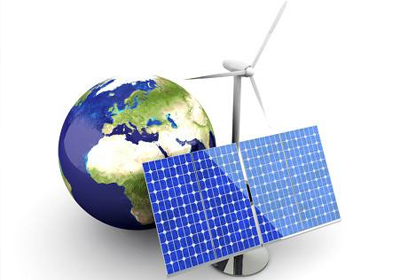PCB Utilization in Renewable Energy
According to a hot topic in the technology market: everyone in the workplace and in the family is implementing “environmental practice”. Environmental protection has become the requirement of many countries to grow together. It has gradually become the main root strategy of marketing, especially in the renewable energy industry.

This article highlights current market trends, how PCBs can be applied to renewable energy and upcoming technologies, and future applications for the renewable energy industry. The PCB industry will have new innovations that will bring new advantages to products in the industry, especially to help them turn into green businesses.
Strengthening green environmental protection has become the mainstream of manufacturing. In addition to the renewable technology industry, the wind energy industry, solar energy, energy management systems, rain energy, power generation and agriculture, it is also used in the PCB industry. To this end, US PCB manufacturers are taking additional steps to provide customized turnkey and contract manufacturing services to project and model friendly ideas into perfect PCB prototypes.
Thick copper PCBs for solar and wind energy storage/power generation inverters, HDI and multilayer PCBs for energy management equipment, rigid/flexible PCBs, SMT, etc. are widely used in the renewable industry. PCB assembly, PCB fabrication and prototyping have made significant changes to the technology used in the PCB manufacturing process to maintain quality and durability in the case of zero defect mass production.

These new ideas can foresee the way people use energy. Some of them are summarized as follows:
Breakthroughs have been made in inverters and controllers used in wind turbines and photovoltaic solar systems, where MPPT (Maximum Power Point Tracking) technology has been upgraded. Other green environmental protection initiatives have proven the results of renewable energy data analysis, including automated metering infrastructure (AMI), simultaneous phasor technology, microgrid and more.
Renewable energy grid-integrated electronic systems are driving good growth in the agricultural sector. The wireless system also enables the agricultural industry to survive the fierce competition in the market. Control systems and electronic equipment play a vital role in agriculture, forestry and horticultural development.
Renewable energy desalination plants are also exploring drought and water scarcity issues. The upgrade of this technology also makes it possible to measure the impact of climate change on water. In addition to water extraction, solar and renewable energy are also affected by innovations in the construction business. For example, the Building Automation System (BAS), also known as the Building Management System (BMS), affects solar and renewable energy throughout the building's ventilators, safety systems, power supplies, fire protection systems and lightning operations. The design energy management and optimization system is used in the design of hybrid photovoltaic systems, allowing dynamic power management through operational simulation.
Creating underground reservoirs for power generation can also affect geothermal energy in the United States. Geothermal energy is used as a heat pump for heaters in winter and as a cooler in summer.
It is predicted that by 2030, the consumption of renewable energy will double. This will help PCB new startups, manufacturing units and original equipment manufacturers deliver cost-effective and smartly designed electronic solutions.
评论
发表评论